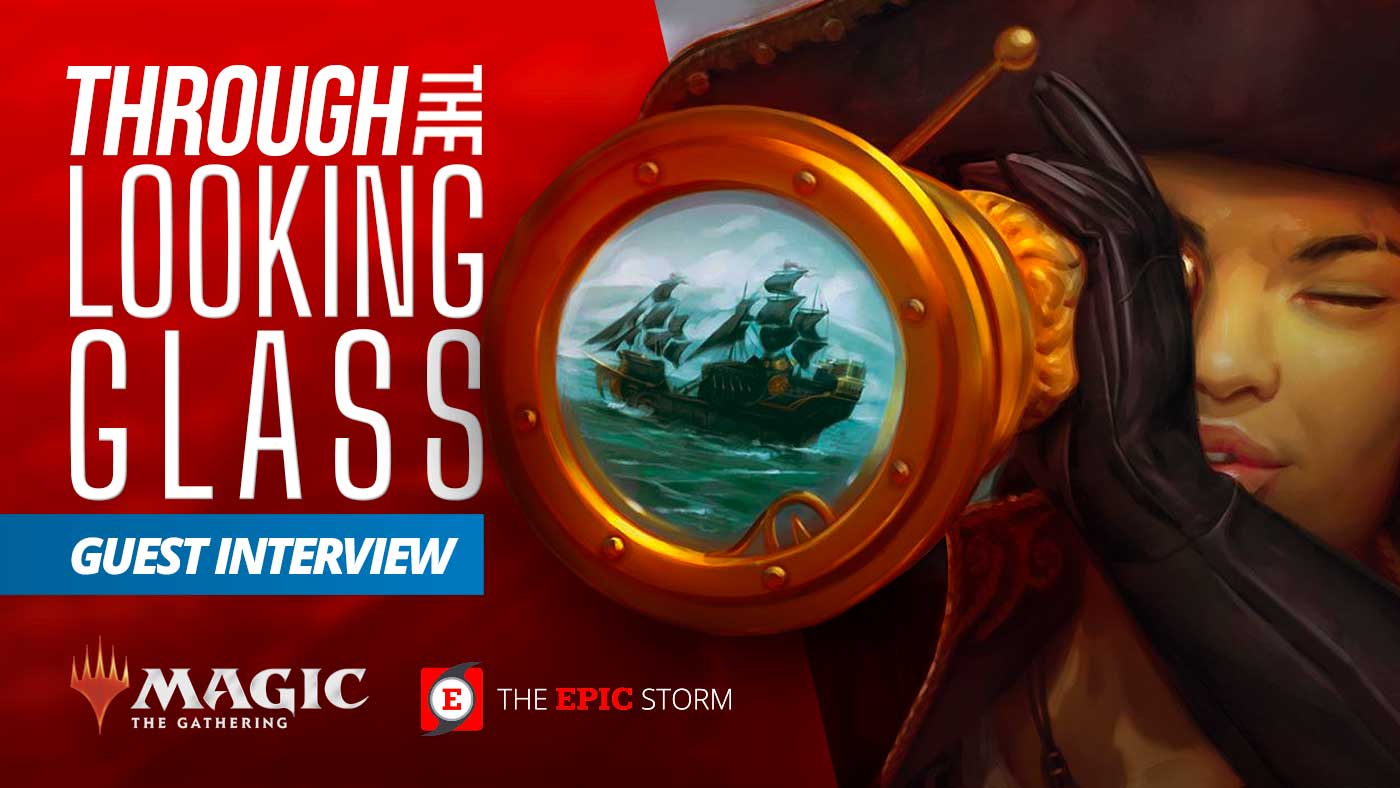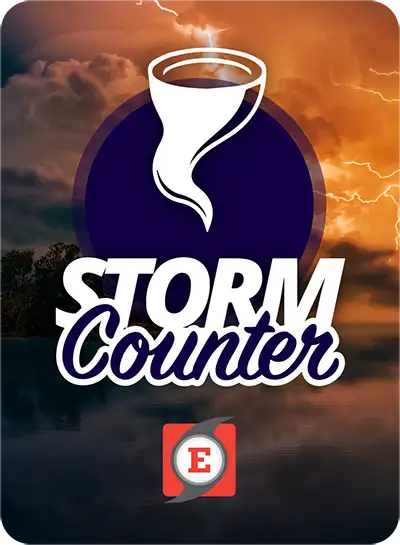
Special Guest
A few words on Matthew Vook
(TWITTER: @Ozymandias172| MTGO: Ozymandias17)
Matthew Vook is the finalist of SCG DC Legacy 2017, the winner of SCG Baltimore Legacy 2018, and the 2019 MTGO Legacy Format Champion. He has numerous MTGO Legacy Challenge top8s and several wins primarily with fair midrange decks.
In game one, the UR and UWR decks are quite similar. The only major difference is that UR’s removal spell of [[Lightning Bolt]] can also shorten the clock by a turn while the UWR deck can use [[Prismatic Ending]] if you play a permanent such as [[Wishclaw Talisman]] and then pass the turn. In the post board games, UR generally has less cards applicable in the sideboard for the matchup. Most UWR sideboards have [[Meddling Mage]] as focused sideboard hate for [[Doomsday]]. It gets brought in against TES, but it isn’t as powerful as other hatebears such as [[Ethersworn Canonist]] in this specific matchup. Most UWR lists have one [[Null Rod]] which is probably the best card in the matchup.
Having those cards in the opening hand factors into the decision to keep or mull, but at the most basic level I would like [[Force of Will]] or [[Force of Negation]] in the opening hand. Play and draw is also really important for mulligan decisions. On the play, I might be more inclined to keep that plays a creature on turn one with only something like [[Daze]] as interaction. On the draw, I would often use a cantrip on the first turn to find a [[Force of Will]] type card since I expect TES to do something powerful or win the game on turn two. Overall, I would put a much greater focus on having counter magic and cantrips to find counter magic than having these cards in my opening hand.
My approach to the matchup really focuses on speed. I expect TES to do something powerful on turn two or three, and I only get to play the game after that point if I had relevant interaction. [[Urza’s Saga]] is very slow and mana intensive. On the first three turns, I would rather play a land that allows me to cast more efficient threats or my cantrips to find cards like [[Force of Will]]. In these games surveilling [[Urza’s Saga]] into the graveyard to have an enchantment for delirium is usually the best thing to do with the card. If I was able to counter the TES player’s important spell and we are both trying to rebuild, then [[Urza’s Saga]] creating threats may be relevant. In general, the artifact tutor from [[Urza’s Saga]] doesn’t do much in the matchup. [[Retrofitter Foundry]] is slow and mana intensive, and [[Soul-Guide Lantern]] doesn’t do much because TES is not particularly graveyard reliant. Some lists have [[Pithing Needle]] which may stop [[Wishclaw Talisman]], but that is still somewhat narrow.
If the TES player has [[Empty the Warrens]] in the opening hand, it will often be game winning. At most Jeskai has 1-2 answers in the 75, but I probably wouldn’t even bring them in for the matchup. If TES tried to increase the number of [[Empty the Warrens]] for this plan, then dynamic would change and I would bring them in as a countermeasure. The typical play patterns in the matchup are that Jeskai wants to counter cards like [[Wishclaw Talisman]], [[Burning Wish]], [[Ad Nauseam]], or [[Echo of Eons]]. If you are going to tutor for [[Empty the Warrens]], your tutor is still going to be hit by [[Force of Will]] if the Jeskai player has it, so the fact that the Storm mechanic plays around counter magic is irrelevant. Cards like [[Flusterstorm]] or [[Mindbreak Trap]] aren’t typically played in Jeskai.
The relevant interaction in pre-board games is [[Force of Will]] and [[Daze]]. I play one [[Force of Negation]], but some lists have no copies. Most lists have three [[Prismatic Ending]] which can hit artifacts in play, but the Jeskai deck doesn’t have a way to interact with permanents at instant speed in the matchup.
I personally build my 75 to focus on the most common decks that I expect to face in a tournament. Of the [[Dark Ritual]] decks, I most expect [[Doomsday]], slightly below that is TES, and then ANT is a deck that I would be very surprised to play against. The cards that specifically target [[Doomsday]] such as [[Meddling Mage]] or [[Torpor Orb]] either are somewhat narrow in the case of the former, or completely useless in the case of the latter. Overall, I think Jeskai is favored against [[Doomsday]] when considering all aspects of the matchup. I think the matchup against TES is much closer because TES has much more explosive potential and requires you to mulligan more to find specific cards. Against [[Doomsday]], I would build a gameplan around them going for a combo turn on turn 3-4 while against TES, I would expect them to do something powerful on turn 2-3. ANT is in the unfortunate position of getting hit by most of the splash damage from the Jeskai deck. ANT is more of a slow engine deck, so it can lose to the potential fast starts from Jeskai, which also has more tools to grind against them. ANT also is much more weaker to graveyard hate, and Jeskai has access to very powerful tutorable graveyard hate for little investment.
-4 [[Swords to Plowshares]] -1 [[Prismatic Ending]] -1 [[Retrofitter Foundry]] -1 [[Karakas]] +1 [[Null Rod]] +1 [[Pithing Needle]] +1 [[Force of Negation]] +2 [[Meddling Mage]] +2 [[Pyroblast]] Most of these changes are pretty straightforward. I think it is worth it to have some copies of [[Prismatic Ending]] for the possibility that the TES player has to play out [[Wishclaw Talisman]]. You could cut more [[Prismatic Ending]] for more [[Pyroblast]] effects, but I think in general they aren’t that good against TES. I would leave in one [[Soul-Guide Lantern]] just for the potential cantrip effect, but wouldn’t bring in the second copy.
In my most recent list, I play one [[Soul-Guide Lantern]] in the maindeck and one in the sideboard. This is primarily to have access to maindeck graveyard hate, and I wanted the second [[Soul-Guide Lantern]] to fight against [[Uro, Titan of Nature’s Wrath]]. Some lists play [[Grafdigger’s Cage]] instead of the sideboard [[Soul-Guide Lantern]]. I think [[Grafdigger’s Cage]] is worth bringing in if you are playing it because it stops [[Echo of Eons]]. On the other hand, the other cards don’t do much in the matchup since you don’t have a good timing window to interact with [[Echo of Eons]].
I don’t think [[Meltdown]] really does much in the matchup. I would expect the TES player to play out [[Wishclaw Talisman]] for mana efficiency in some draws. You don’t have cards like [[Thalia, Guardian of Thraben]], [[Ethersworn Canonist]], or discard that would incentivize the TES player to preemptively play out artifact mana. Due to these factors, I would expect the TES player to just hold their artifact mana until the turn they Storm off, and at that point, sorcery speed interaction doesn’t matter. I think it is worth having some number of [[Prismatic Ending]] in post board games to potentially hit [[Wishclaw Talisman]].
I would probably expect some number of [[Prismatic Ending]] or [[Abrupt Decay]] to hit [[Null Rod]] or slow down aggressive draws. They might also bring in some number of [[Galvanic Relay]] to try and grind.
I think [[Galvanic Relay]] is good in the matchup because Jeskai doesn’t have a good way to interact with it. The card does have some downsides. I remember a game against TES where they had a relay for 5-6 and they hit all mana and no tutors, so there is the potential for bad variance. The Jeskai deck can also be surprisingly fast. You may not get the additional turn to cast the spells from [[Galvanic Relay]].
I think that overall [[Empty the Warrens]] is a much better card in the matchup. The cost is much less prohibitive than it is for [[Aeve, Progenitor Ooze]], so you can more reliably cast it earlier in the game. To get to the stage of the game where you cast [[Aeve, Progenitor Ooze]], you just need so many resources that I would expect that you’d rather just cast [[Tendrils of Agony]]. Since there is only a single copy of each card in the deck, you are reliant on tutors to find them if you didn’t draw them naturally or find them with cantrips, so their ability to play around countermagic with the Storm mechanic is negated. I don’t think the creature size matters because either token will block the board. The issue is that the Jeskai deck can fly over with [[Dragon’s Rage Channeler]] or [[Murktide Regent]] and still win the game through these cards.
The most important aspect of the matchup, or most combo matchups in general, is gauging the speed at which you can play. TES is a more explosive and powerful deck than Jeskai, so it sets the pace of the game, especially when it is on the play. Here is an example to try and demonstrate this point. Let’s say that both players kept seven-card hands and the TES player is on the play. They do nothing or cantrip the first turn. The Jeskai player has [[Daze]] as the only form on interaction, and on turn one, they have the option to play [[Ragavan, Nimble Pilferer]] or [[Ponder]]. They should play the [[Ponder]] because they likely need to find [[Force of Will]] and may potentially lose the game if they play [[Ragavan, Nimble Pilferer]]. If the Jeskai player is on the play, however, then they can more reasonably lead with [[Ragavan, Nimble Pilferer]] and [[Ponder]] the following turn. Similarly, if the TES player mulliganed several times, then the Jeskai player can expect the average turn that they combo off to be later, so the Jeskai player is more free to use the early turns to develop their own board.










